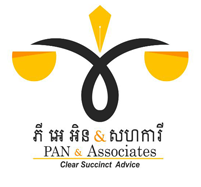Debt recovery in Cambodia is governed by the Civil Code, the Code of Civil Procedure, and other related regulations. The process involves several steps that creditors can follow to recover debts from defaulting debtors. Below is an outline of the typical debt recovery process under Cambodian law:
Demand for Payment
– Initial Contact: The creditor usually begins the debt recovery process by sending a formal demand for payment to the debtor. This letter should outline the outstanding debt, any interest accrued, and a deadline for payment. This step is crucial as it demonstrates the creditor’s intent to settle the matter amicably.
– Negotiation: At this stage, the debtor may propose a settlement plan or negotiate for more favorable payment terms. If an agreement is reached, a written settlement agreement is advised.
Mediation and Conciliation
– Before proceeding with legal action, creditors may attempt to resolve the dispute through mediation or conciliation. Cambodia’s legal system encourages parties to settle disputes amicably, and mediation can be an effective and less costly alternative to litigation.
Filing a Lawsuit
– Complaint Submission: If the debtor fails to pay or negotiations break down, the creditor can file a lawsuit in the competent court. The lawsuit must include details of the debt, evidence of the agreement (such as a contract or promissory note), and proof of the debtor’s default.
– Court Fees: The creditor must pay court fees upon filing the lawsuit. These fees vary depending on the amount of the claim.
Court Proceedings
– Preliminary Procedures: Once the lawsuit is filed, the court will notify the debtor and set a date for the first hearing. The debtor may submit a defense or counterclaim during this period.
– Trial: If the case proceeds to trial, both parties present their evidence and arguments before the court. Witnesses may be called, and documents may be submitted as evidence. The trial process in Cambodia can be lengthy, depending on the complexity of the case.
Judgment
– Court Decision: After considering all evidence and arguments, the court will issue a judgment. If the court rules in favor of the creditor, it will order the debtor to pay the outstanding debt, along with any applicable interest and legal fees.
– Appeal: Both parties have the right to appeal the court’s decision within a specified period if they are dissatisfied with the judgment.
Enforcement of Judgment
– Execution of Judgment: If the debtor does not voluntarily comply with the court’s judgment, the creditor can request the court to enforce it. This may involve the seizure and sale of the debtor’s assets, garnishment of wages, or other legal measures.
– Execution Fees: The creditor may need to pay additional fees for the enforcement process.
Bankruptcy Proceedings (if applicable)
If the debtor is unable to pay the debt and other liabilities, they may be declared bankrupt. The creditor can file for bankruptcy proceedings against the debtor. In such cases, the debtor’s assets will be liquidated, and the proceeds will be distributed among the creditors according to the priority of their claims.
Key Considerations
– Statute of Limitations: In Cambodia, the statute of limitations for filing a debt recovery claim is generally five years from the date the debt became due. However, this period may vary depending on the type of debt.
– Interest Rates: The Civil Code of Cambodia regulates the maximum interest rates that can be charged on debts. Creditors must ensure that the interest rates stipulated in the agreement comply with the law to avoid penalties or reduction of claims.
– Cross-border Debt Recovery: For international debts, creditors may need to seek enforcement of foreign judgments or arbitral awards in Cambodia. This can be a complex process, requiring compliance with international treaties and local laws.
Note: The debt recovery process in Cambodia, while structured, can be lengthy and complicated, especially in cases involving large amounts or disputes. Creditors are advised to seek legal counsel to navigate the process effectively and ensure compliance with Cambodian laws.
